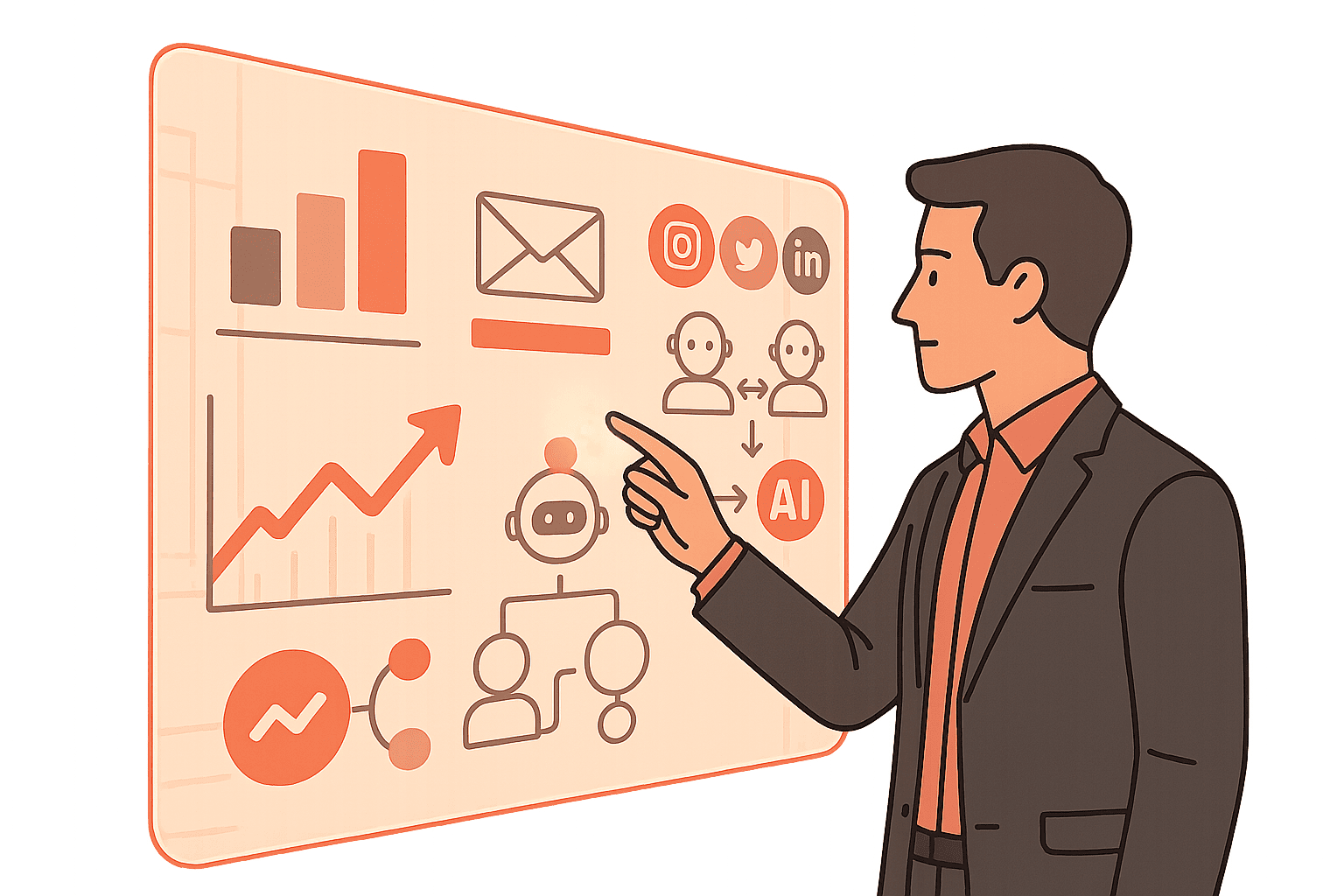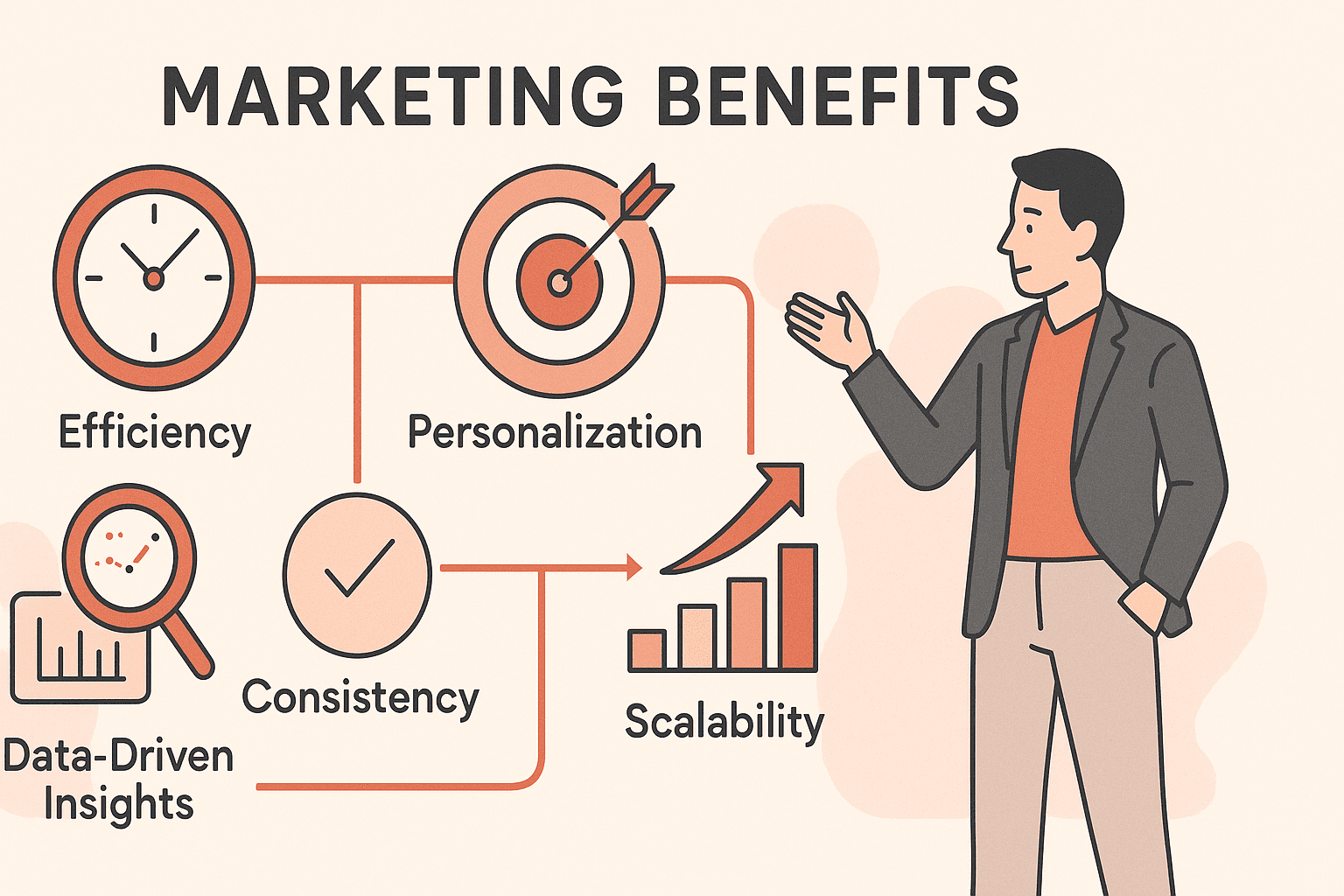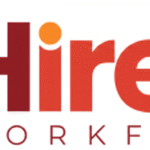
Wilton Rogers
September 18, 2025
Marketing has always been about delivering the right message to the right audience at the right time. But in today’s fast-paced digital environment, manual marketing methods simply cannot keep up. Consumers expect personalized, seamless, and timely experiences across every channel, and businesses that fail to meet these expectations risk losing both attention and loyalty.
This is where automation for marketing steps in. By combining smart workflows, AI-driven insights, and data-based triggers, marketing automation enables businesses to engage customers consistently, nurture relationships, and scale campaigns without the need to constantly expand staff.
Marketing automation is the use of software and AI-powered tools to execute repetitive marketing tasks more efficiently. Instead of manually creating and sending campaigns, businesses can build workflows that respond automatically to customer actions, behaviors, or data signals. In practice, this can include welcome sequences for new subscribers that adapt to their clicks, timed follow-ups after form submissions, or website events that trigger relevant content without human intervention. These processes save time and ensure that every customer interaction feels timely and relevant.
The rise of digital marketing has made campaigns more complex, with brands engaging customers across email, social media, search engines, websites, and mobile apps. Managing all of these touchpoints manually is no longer feasible. Automation for marketing matters because it delivers consistency in messaging, enables true personalization at scale, reduces manual effort, and provides real-time visibility into what is working. It also creates a foundation for growth, so teams can expand their reach without expanding headcount at the same pace.
Automation can support the entire customer journey, from awareness to retention. For example, lead nurturing programs can warm prospects with targeted content based on behavior, while lifecycle email flows keep existing customers engaged with relevant updates and offers. Social publishing queues maintain a steady brand presence even when teams are busy, and dynamic customer segmentation ensures messages reach the right people at the right moment. On the analytics side, automated reporting closes the loop by revealing performance patterns that inform the next iteration of campaigns.

While the benefits are clear, businesses must address several common challenges. Integration with existing systems is essential so that automation tools work seamlessly with CRM, sales platforms, and analytics. Teams must also avoid over-automation that can make communications feel impersonal, maintaining a human touch in high-impact moments. The quality of content remains a prerequisite; automation amplifies great copy and offers, but it cannot replace them. Finally, leaders should select platforms that match current needs and plan for training and adoption so that the technology is used to its full potential.
As AI advances, marketing automation is moving beyond simple rules and timers toward adaptive systems. Predictive models will prioritize the next best action for each user, natural language capabilities will refine subject lines and offers in real time, and on-site experiences will become increasingly dynamic. The shift is from reactive marketing to proactive orchestration; anticipating needs and delivering value before customers ask. Organizations that embrace this evolution will build stronger relationships and grow more efficiently than those relying on manual, one-size-fits-all tactics.
Automation for marketing is no longer optional. It is the operating system of modern customer engagement and sustainable growth. By automating repetitive tasks, personalizing campaigns at scale, and leveraging real-time data, businesses can connect with customers in smarter, more impactful ways. For organizations aiming to stay competitive in a fast-changing market, adopting marketing automation is one of the most strategic moves they can make.
Let us show you exactly where to start.
👉 Schedule a Free Automation Assessment



Welcome!
Meet your team of 24/7 AI Assistants. Each built to help your business run smarter and faster. Choose how you’d like to connect:
Call Mira - Your AI-Powered Voice Assistant
Reach out to Mira anytime at (817) 809-3820
for instant support and to see how AI and automation can transform...
your business. Mira can walk you through our services, answer questions, and even schedule a demo - all in real time.
Read more..
Talk Live with Nova - Your Online AI Voice Agent
Want a real conversation right here online? Nova can speak with you directly through your browser. No downloads...
, no wait times. Ask about automation, AI Employees, or how STA can streamline your operations. Nova is standing by for a one-on-one chat right now.
Read more..
Chat Instantly with Seren - Your AI Conversation Partner
Prefer to text? Seren is your instant connection for quick answers, resources, or a guided walkthrough of how we help businesses...
like yours automate and scale. Type your question and Seren will reply in real time.
Read more..
© 2026 ScaleThroughAutomation, All right reserved.